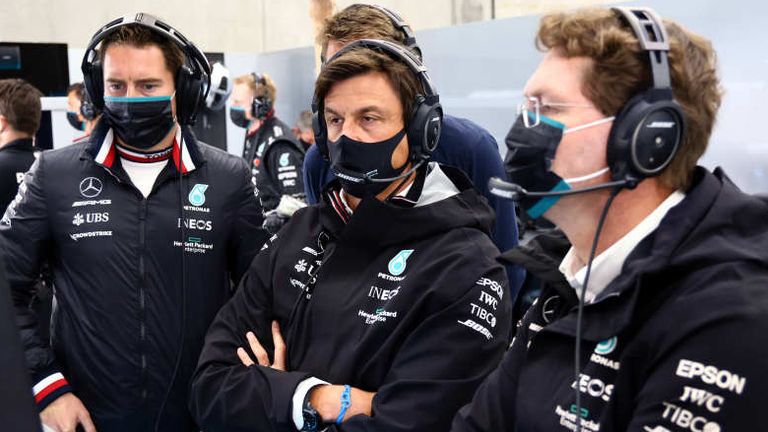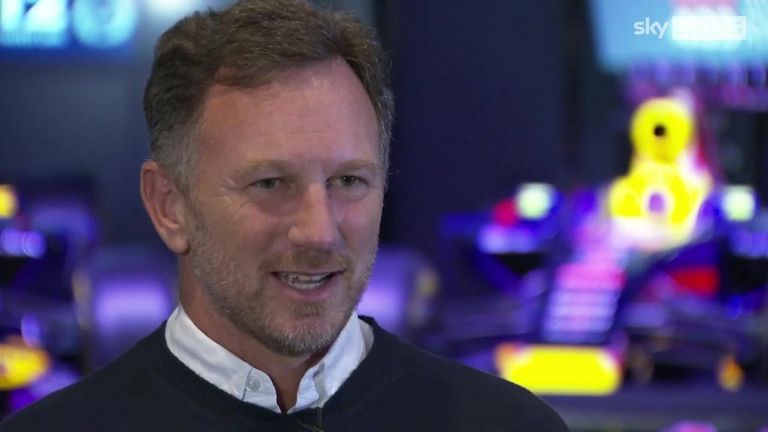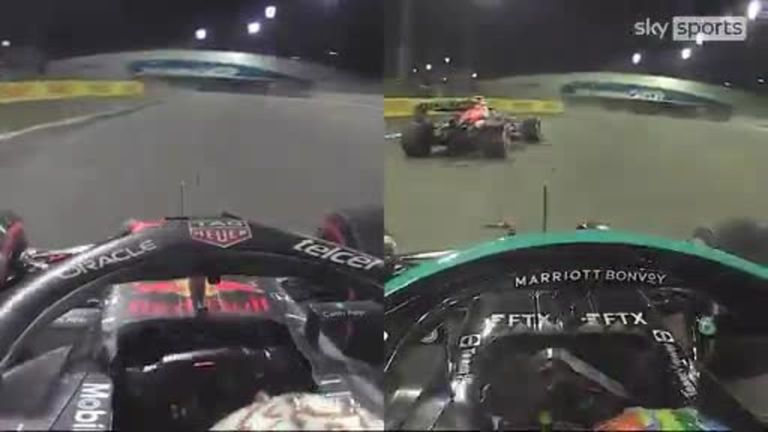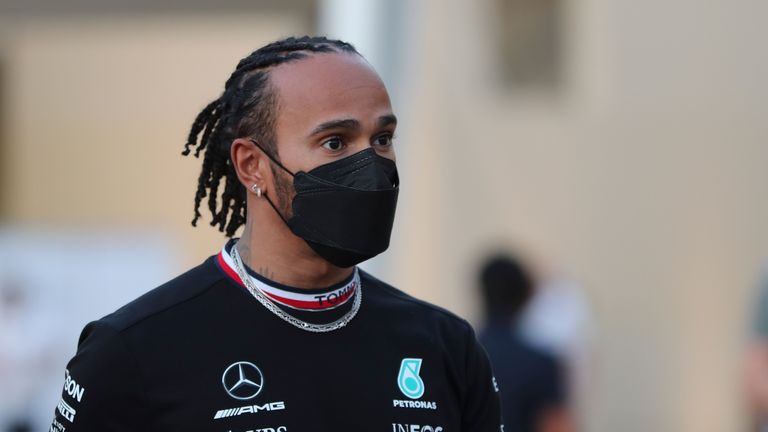Mercedes' Toto Wolff says F1 team boss radio communication with race director sometimes 'overstepped' mark in 2021
"We were given the opportunity to talk to the race director directly and because we fight so fiercely for the interests of our teams, all of us overstepped," says the Mercedes team principal
Friday 31 December 2021 14:09, UK
Mercedes boss Toto Wolff agrees with suggestions that F1 team bosses should not be able to speak to the F1 race director over the radio.
Communications between teams' pit walls and Race Control have long been commonplace but only started to be heard over the TV world feed from mid-way through this season.
Messages broadcast have included the more traditional exchanges between sporting directors and Michael Masi, the race director, but have also featured interventions from team principals including Wolff and Red Bull's Christian Horner.
- Rosberg, Button expect Lewis Hamilton to race on
- Mercedes withdraw Abu Dhabi appeal
- Martin Brundle's verdict on the F1 season finale and Max's title win
Comments from Wolff and Horner amid the contentious end to the season in the Abu Dhabi GP were likened to F1's equivalent of managers pressuring the referee in football.
F1 managing director of motorsport Ross Brawn has since suggested in the German press that in-race communication between team principals and the race director should be stopped, and Wolff said: "I agree with Ross, but I equally blame Ross and myself because we have been part of the decision making to broadcast more of the channels for the purpose of transparency and entertainment for the fans.
"There is so much going on on the intercom that giving fans a little bit of an overview of all the little dramas that happen - is the car breaking down, are we having some kind of strategy discussion? - was meant well but I think we overshot.
"I need to take myself by the nose. And Christian. We were given the opportunity to talk to the race director directly and because we fight so fiercely for the interests of our teams, all of us overstepped.
"This certainly was part of the failures this year that under pressure from the team principals also the race director's life wasn't made easier. So we need to come back."
Wolff added: "The team principals shouldn't speak directly to the race director, it should be the sporting directors.
"I would even go one step further; I don't think the sporting directors should be lobbying the race director or exercising pressure. They should be pointing to situations that the race director and his colleagues might have not spotted. But not lobbying or pressurising."
Wolff hopes Abu Dhabi triggers F1 changes
"The whole system of decision making needs to be improved," said Wolff as he reflected on the controversial handling of the Safety Car period in Abu Dhabi and what he believes has been inconsistent application of rules through the season.
After talks with Mercedes in the days after the season finale last week, the FIA committed to conducting a full review into the Abu Dhabi GP and working with drivers and teams to provide "clarity… to the participants, media, and fans about the current regulations to preserve the competitive nature of our sport while ensuring the safety of the drivers and officials".
Wolff is optimistic the process will result in tangible change from 2022.
"In the day and age of transparency such decisions cannot be made anymore in backroom deals," he said.
"Why I am optimistic is that most stakeholders in the sport will share my frustration on the decisions that have been made throughout the year. Everyone who is a racer, you guys, us, knows what happened.
"So nevertheless, I have confidence because we will all be pulling on the same rope in the same direction. The teams, and I have had feedback from the teams, and from the drivers. I had assurances from [FIA secretary general of Motor Sport] Peter Bayer and Stefano [Domenicali, F1 president] that in the next weeks and months we will close the gaps that have opened up more and more over the last few years."
Despite still feeling a strong sense of injustice about the sequence of events that led to Max Verstappen overtaking Lewis Hamilton on the final lap of the season to win the world title, Mercedes opted against pressing on with an appeal to the FIA's own International Court.
Explaining why they made that decision despite widespread continued outcry about what happened, Wolff said: "I can understand the frustrations of many and to be honest I have the same. I'm also in two minds all the time between my perspective and my judgement on the legal position, and my realism about the outcome of such proceedings.
"There is a difference between being right and maintaining justice and I don't think at the moment we are set up in terms of our governance to end up in a situation that would have given us remedy and reinstalled the result that was taken away from Lewis before the last lap of the race.
"That's why heavy-hearted we decided not to appeal because we would not have gotten the result back. Now I think we have the right tools in hand to make sure the decision making going forward is better.
"We will be holding the FIA and decision makers accountable for making the sport more robust, and the decision making more robust and consistent."





